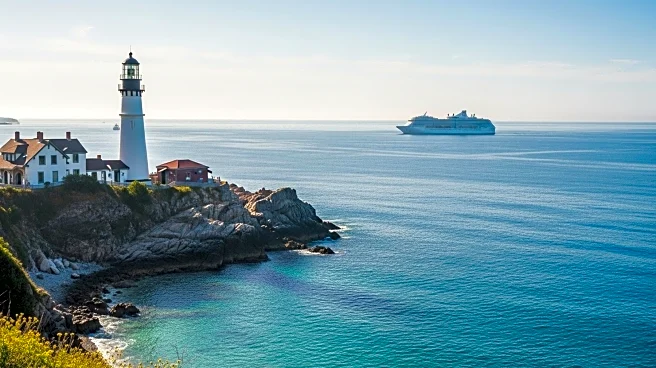What is the story about?
What's Happening?
European cities are increasingly imposing restrictions on cruise ships to address the challenges of overtourism. Major ports like Amsterdam, Venice, and Barcelona are taking steps to limit cruise ship arrivals, aiming to balance economic benefits with the need for sustainable tourism practices. These measures include reducing the number of berths, implementing environmental mandates, and rerouting large ships to protect sensitive ecosystems. The actions reflect a growing concern over the impact of mass tourism on local communities and infrastructure, prompting cities to seek a more sustainable approach to managing visitor numbers.
Why It's Important?
The restrictions on cruise ships are significant as they represent a shift towards sustainable tourism practices in Europe. By limiting cruise ship arrivals, cities aim to reduce overcrowding, protect local ecosystems, and improve the quality of life for residents. These measures could lead to a more balanced approach to tourism, where economic benefits are weighed against environmental and social impacts. The cruise industry, which contributes significantly to local economies, may face challenges in adapting to these new regulations, potentially affecting revenue and employment in the sector.
What's Next?
As cities continue to implement restrictions, the cruise industry may need to innovate and adapt to maintain its economic viability. This could involve developing more sustainable practices, such as using shore-side power to reduce emissions and exploring alternative routes that minimize environmental impact. The ongoing dialogue between local governments and the cruise industry will be crucial in finding solutions that balance tourism growth with sustainability. Additionally, other cities may follow suit, leading to broader changes in how cruise tourism is managed globally.
Beyond the Headlines
The move towards restricting cruise ships highlights broader ethical and environmental considerations in tourism. It raises questions about the responsibility of the tourism industry to prioritize sustainability and the rights of local communities to preserve their cultural and environmental heritage. These developments could lead to long-term shifts in tourism policies, encouraging more destinations to adopt sustainable practices and rethink their approach to managing visitor numbers.















